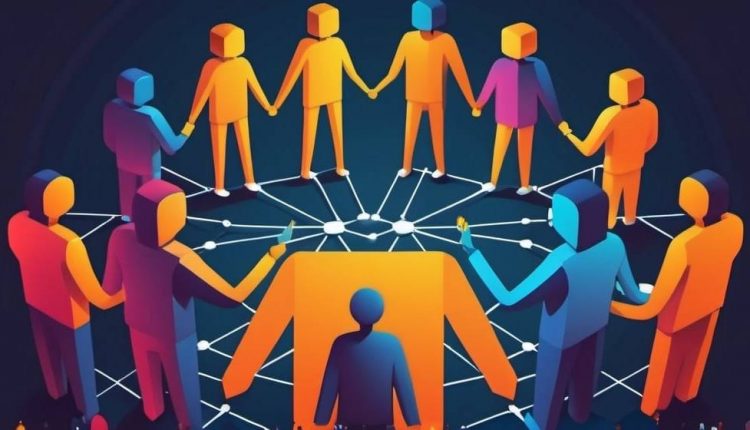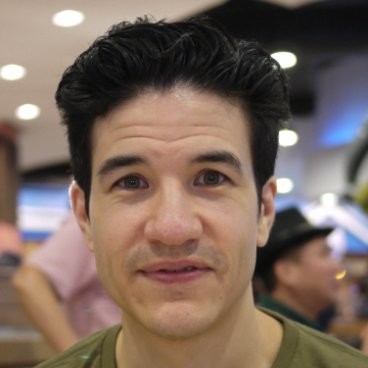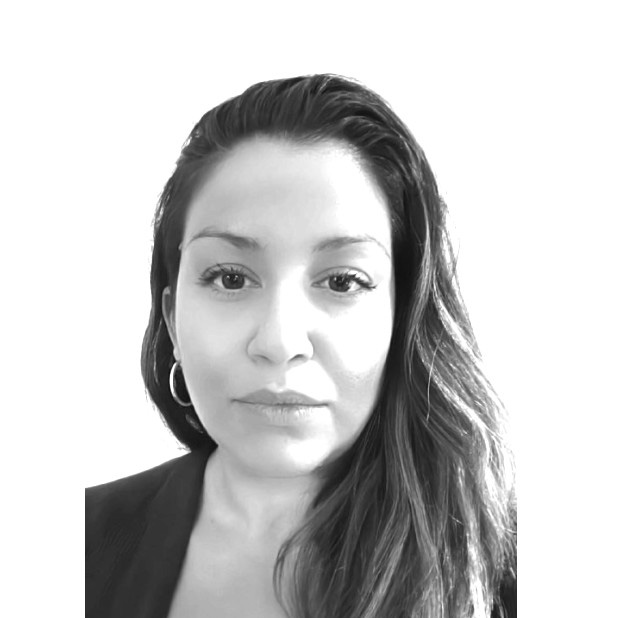What’s the state of web3 gaming DAOs?

Welcome to the June edition of BlockchainGamer.biz’s regular Mavens group. If you’d also like to join the discussion, please contact [email protected]
A lot of hot air has been spent on the subject of DAOs over the years, with little actual adoption. With the recent launch of The Sandbox DAO (and other examples such as ApeDAO) we asked our panel of blockchain gaming experts if this suggest the concept of DAOs is not dead?
Robby Yung – CEO, Animoca Brands

I think DAOs are a true innovation in web3 – not because democratic voting systems were unavailable in other forms, but because DAOs that organise stakeholders who hold tokens are far more efficient and trustworthy, meaning easily deployed at scale for people and institutions across the Internet. However, we must remember that a DAO as a construct is only as good as its membership (a lot like democracy), and so the implementation and management / facilitation of the DAO is key to its success.
We’re big believers in DAOs because we think they’re part of the path to decentralisation, and I personally really love the way that they can be both inclusive and representative.
Imagine a big web2 tech platform that was run as a DAO – say, if the Apple App Store had stakeholder voting by all the developers who offer their wares there and they could have a say in the take rate, the running of the store, etc. It would be a very different place. But just like democracy, it’s messy and imperfect, but you can’t let the perfect be the enemy of the good, as they say.
Rebecca Liao – Co-founder and CEO, Saga
DAOs were entirely misbranded on debut. DAOs are neither truly decentralized nor autonomous, and there is usually only the faint outline of an organization. A DAO is really a community organized around token incentives, which can be highly valuable in communities that have suffered from coordination problems and do not neatly fit the mold of more formal organizations. Gaming guilds are a great example of this, but they only work when there is highly dedicated human leadership involved.
Automated smart contract triggers were part of the early feature set of DAOs, but what most found was that they were incredibly difficult to implement beyond voting and always led to irreconcilable controversy. In addition, the volatility of tokens means that token incentives and ownership alone cannot define roles and responsibilities in a DAO.
Lots of lessons learned from the first go around, and I’m optimistic about the next iteration because we’ve become much more clear-eyed about what a DAO is not – a crypto commune – and what it is – community organization for networks that exist almost exclusively online.
Mike Levine – Founder, Mystic Moose

What we’re seeing now is the maturation of the idea of a DAO. Just like the early days of blockchain gaming, the initial hype was filled with potential but often lacked substance. Now, DAOs are starting to find their footing with more structured and meaningful applications.
It’s not just about decentralized decision-making; it’s about creating real value for the community. By allowing players and creators to have a say in the development and direction of the platform, DAOs manage to tap into the collective intelligence and creativity of its user base. This level of engagement and ownership can drive innovation and growth in ways that traditional corporate structures might not be able to.
Last but not least, just like with blockchain games, the key is to make the user experience is seamless and intuitive: if interacting with a DAO feels cumbersome or confusing, it will struggle to gain traction.
Jon Allen – Co-founder, Game7
So many of the past DAO failures have been due to improper application and understanding of the model.
DAOs are inefficient at running a business, building a product, and getting things done. However, DAOs are incredible at getting public input, optimizing for community discourse/contribution, and are well positioned to leverage the fractal nature of growth that web3 has so effectively tapped into to solve large, challenging problems.
A DAO is an optimal structure if we want the community to own and evolve any aspect of humanity, and it is my belief that the future will be heavily shaped by decentralized communities that band together to strive for a better and more transparent future. To achieve this, communities need to be active. They need to participate in learning, building, and decision-making.
DAOs continue to evolve, yet DAO tooling, for the most part, remains fragmented and ineffective. In addition, many communities are suffering from a number of challenges because of the standard ‘one token, one vote’ governance model.
We need tooling that makes it easy for DAOs to measure the contributions of their members and reward them in ways that go beyond money, like granting engaged contributors status, rewards, influence, and power. By tracking, measuring, and rewarding contributions, DAOs could align decision-making capabilities with those who invest the most time and effort into the community. The result would be a meritocratic governance model that distributes power and governing rights to the most productive members of the DAO.
It’s become clear that if we want to address the specific and urgent challenges our world is facing, we need to pull together as a community, as a species, to do so.
Although DAOs have come up short when it comes to getting things done quickly, they remain excellent at supporting the critical community-building aspect of the future, and bright-eyed optimists continue to work day in and day out to ensure that, one day, they will change the world.
Christina Macedo – Co-Founder and COO, READYgg

Reflecting on the trajectory of DAOs, it’s clear that the concept has evolved rather than diminished. When it comes to DAOs, four things come to mind: decentralization, community empowerment, and innovation in governance.
At The Sandbox DAO, stakeholders including gamers, developers, and investors directly shape the project’s governance and development. This approach doesn’t just align with community needs — it drives innovation, engagement, and a sense of ownership that’s transformative for both the platform and its users. It shows how community-driven governance can create robust ecosystems that are responsive and adaptable to user needs. Similarly, ApeDAO illustrates the power of DAOs in niche communities, where decentralized decision-making allows members to manage collective assets and drive the project’s direction together. This empowerment gives users a tangible stake in the ecosystem and becomes a model for active, meaningful community interaction. At READYgg, we integrate the principles of community-centric governance into our strategies to ensure our platforms not only resonate with our users but also lead the way in innovative community engagement.
Ultimately, these examples mark a transition to a more mature phase of DAO implementation. We’re moving beyond the initial hype to establish sustainable, community-focused practices. This evolution shows that DAOs are becoming more sophisticated. When aligned with clear use cases and supported by an engaged community, DAOs can facilitate a more inclusive and responsive organizational management and decision-making process.
Sam Barberie – Head of Strategy and Partnerships, Sequence/Horizon Blockchain Games
Early DAOs were such generalist entities that they were basically useless. Most were just vehicles for token speculation and a place to gather a handful of crypto people who were in the DAOs for the sheer zeitgeist of it all. They were like nation states but no one actually lived in the nation the DAO was governing, so decisions and proposals were made in a void; you can’t answer “what do our citizens want?” if you don’t have any citizens who live, love, and work in the same space. That’s how you wind up with random parties, bland collabs, etc.
Fortunately, in gaming, we’re seeing a renewed effort to think about DAOs not as half-baked republics that throw keggers but as groups of people with common financial and spiritual interests in the growth of a sector, ecosystem, or game. That’s great!
At the same time, gamers don’t want bureaucracy. They want safeguards—they want to know that governance and voting structures are established in a way that doesn’t let populist insanity take hold—but even more so they want a say in what will lead to more fun (and yes, perhaps more money) for their community, without a long to-do list. What ideally needs to happen, as it is to a degree with the Arbitrum Gaming Catalyst Program and others like it, is for new structures to spring up to enable decisions at speed, but with guardrails. For example, the structure and rules for how to fund games is a big decision, but whether game X gets $50k or $150k doesn’t need a DAO-wide vote. It’s great to see DAOs in gaming start to put a greater focus on content and enabling content with technology, and less on what city will host the next party. I hope it continues.
Canaan Linder – Founder and CEO, Stardust

Governance is the cornerstone of every company from Fortune 500 companies to open source projects. On blockchain, DAOs have become the de facto decentralised governance method for projects that seek to be owned and operated by the community. While it is extremely transparent, it also comes with incredible amounts of red tape when involving the community in every single decision.
Personally, I believe that elected leaders by a DAO are the way to go, direct democracy as applied to on-chain DAO governance. This takes the best of an efficient company structure with qualified parties directly making decisions while holding them accountable to the broader community through a DAO vote. As Sandbox becomes a DAO and starts to source its community for effective governance to grow its user base and bring it to a sustainable and flourishing game, I do believe it will struggle to establish an effective form of decision-making without elected leaders who the community believes have their best interests at heart.
Quinn Kwon – Head of web3 strategy, Delabs
DAOs are a core concept in the vision of web3 technology, and their idea is unlikely to die out. They are fundamentally important, and many projects will continue to explore and develop them. However, it is true that there has been limited adoption.
This is mainly due to the still-restricted ecosystem. The number of people who can participate in blockchain-based voting is limited, and of those, the number who actually engage is even smaller. For the majority of DAOs to function effectively, mass adoption is necessary.
Nevertheless, DAOs are operational in ecosystems that have grown significantly and amassed a substantial on-chain user base. Examples include large-scale infrastructure projects like Layer1 and Layer2. Delabs, for instance, has recently onboarded the Arbitrum ecosystem, where many decisions are made through DAOs.
Players can directly influence game development, rules, asset management, and funding allocations through voting mechanisms and participation in the DAO. This level of community involvement is unprecedented in traditional gaming, fostering a sense of ownership, engagement, and inclusivity in shaping the gaming experience. DAO governance enables players to build the game they want in a fair and democratic way.
As outlined in our Whitepaper, Delabs Games’ roadmap for DAO governance includes player participation through staking $GAME tokens. These tokens are crucial in determining factors supporting the ecosystem’s sustainability and growth. These factors include community reward allocation schemes, distribution rates among vaults, staking reward rates, asset inventory system (AIS) expansion prices and models, and new project onboarding. $GAME incentivizes and rewards contributors based on their input to the platform.
Russell Bennett – CEO at Metacade

DAOs are a great concept to create a strong level of decentralized governance and connection providing a voice for the community in key decisions. The trouble is that many DAOs, like Sandbox DAO, are pivots from centralized companies to form a community. Due to the centralized nature of the company it brings the question whether it really ever can be a true DAO? Sandbox is a very successful company, it will be interesting to see how successful their phased approach to disentangle Sandbox DAO from The Sandbox will be and how the council formed will guide the process bringing more power to the community?
In a true DAO, no one holds the keys. Successful DAOs exist in the market, but sadly they don’t get the attention or recognition despite working very well. For example, Loot Chain is the most prominent chain of games built autonomously, which is the purest form of a DAO. Every game on Loot Chain is created by players – a bit like a Minecraft or Roblox model – and celebrates pure creation which by definition is what a DAO should be.
The concept of a DAO isn’t dead, but onchain gaming is the perfect platform for DAOs to succeed, in fact music could be another environment for success along with anything that is creative at its core in my opinion. Creativity is a space where more people can have a voice, you don’t need to be an expert to be creative, but you do need expertise in finance to advise on subjects to do with investing for example, which is why many more complex DAOs fail – the community empowered to vote simply doesn’t have the knowledge required for success. For a small niche it is highly successful, but because others are centralized entities with a DAO element it feels more like it’s a play on words at the end of the day.
Sarojini McKenna – CEO, Dacoco
DAOs are far from dead. So long as value is being created on the blockchain the necessity to use a DAO to govern them will remain.
As far as in-game DAOs are concerned things are heating up around the space. At Alien Worlds we are about to launch Tokenized Lore, which is the idea that a DAO governs the canon of our original sci-fi IP. This has huge implications for the media and entertainment space especially as AI tools come online that make it easier to create content and harder to enforce centralized IP.

Comments are closed.